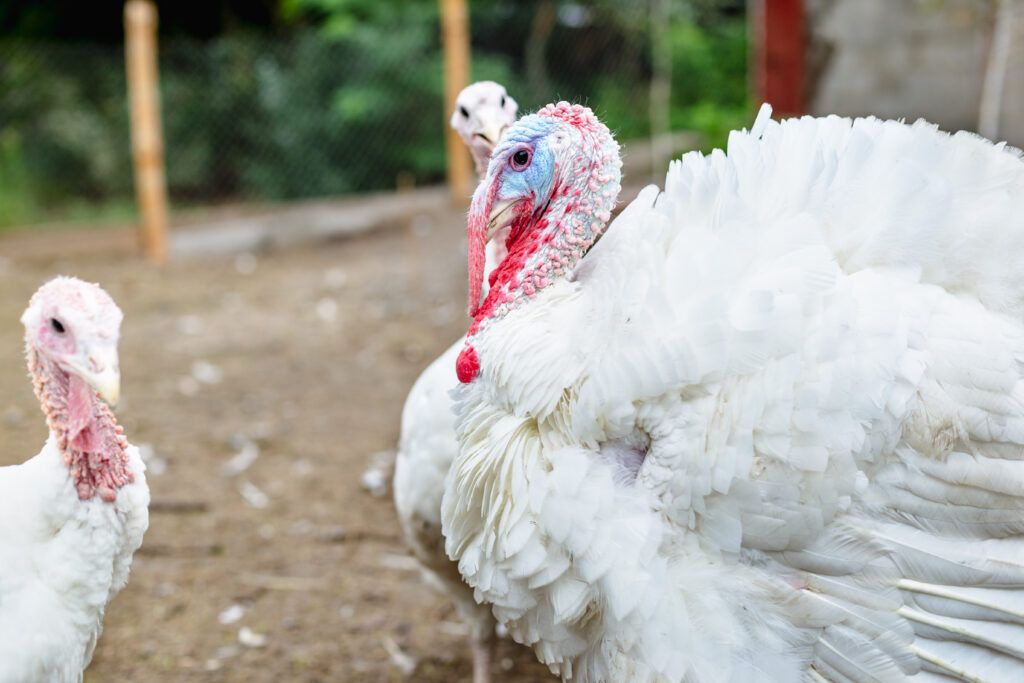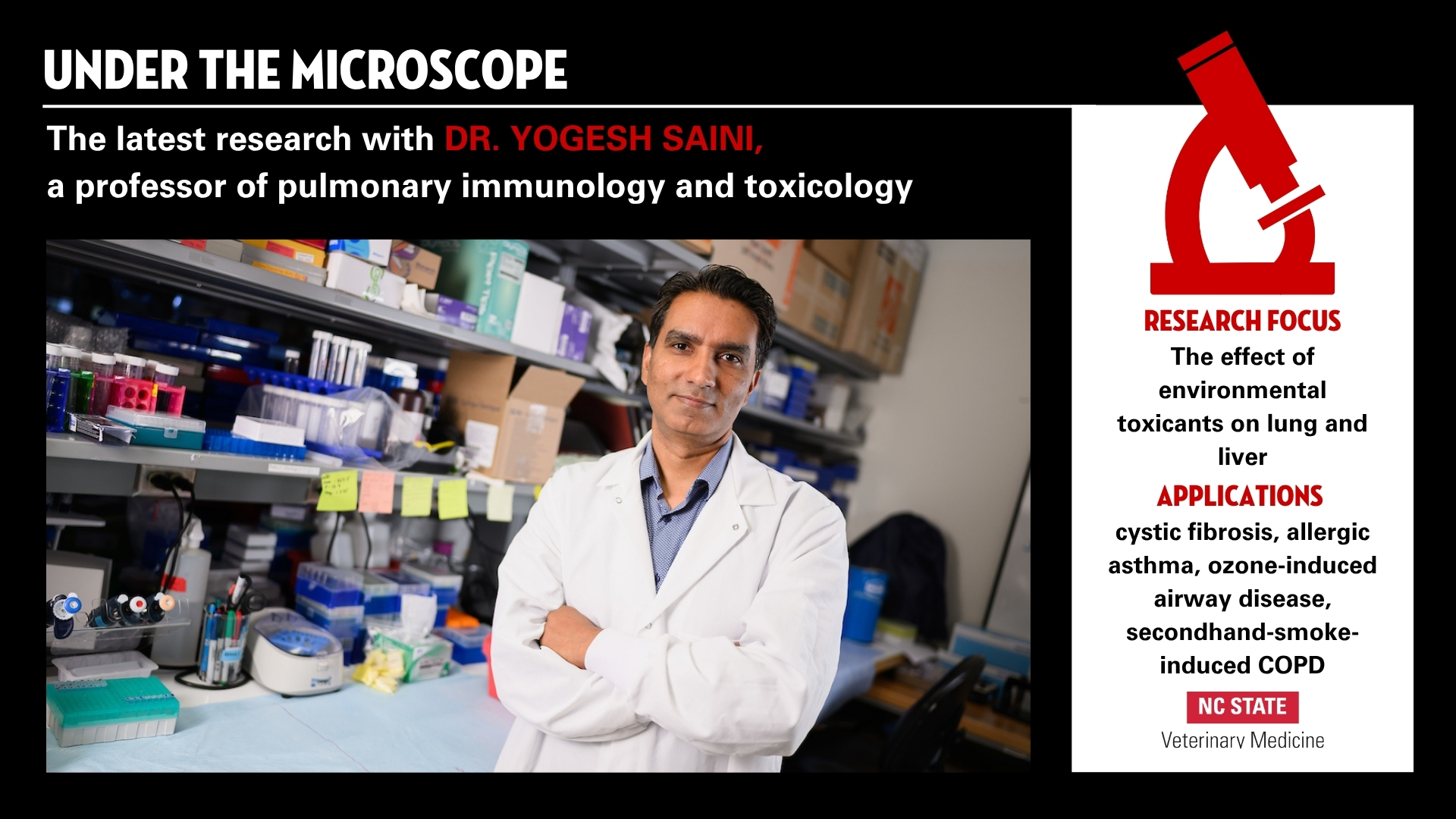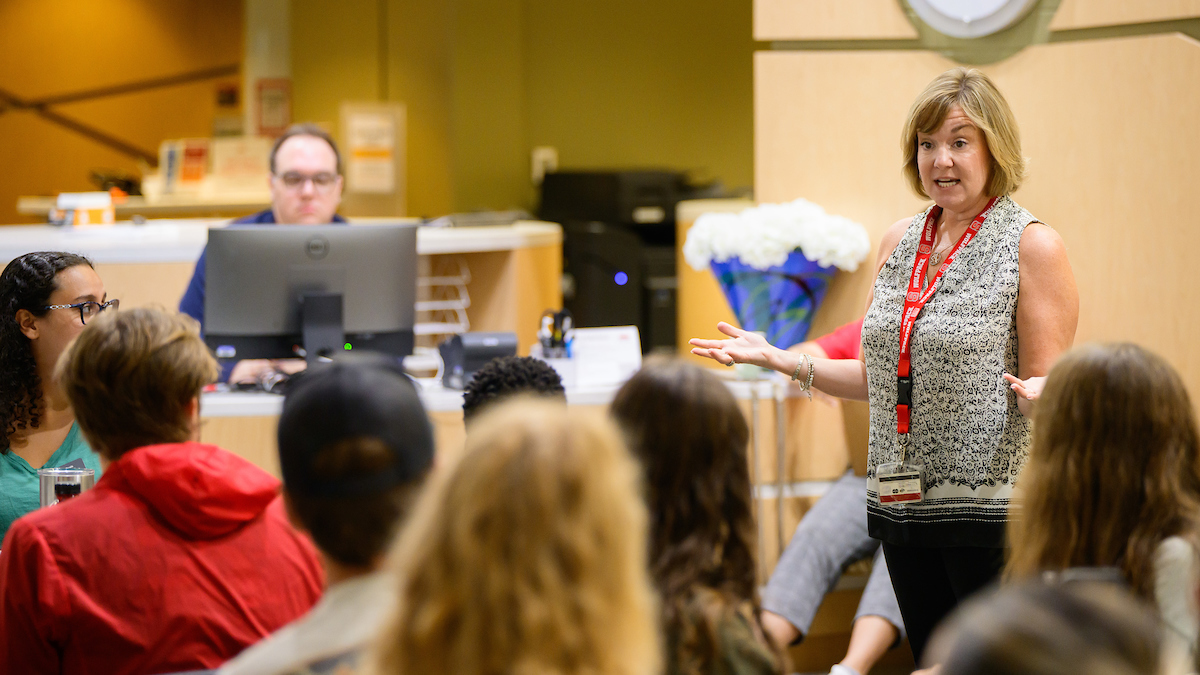Talking Turkey: How a Vaccine In Development at NC State Could Protect Turkeys from a Fast-Spreading Fatal Illness
Supported by a large grant from the USDA, an interdisciplinary team is researching a novel vaccine that could protect turkeys against a deadly disease while boosting their gut health against other illnesses.
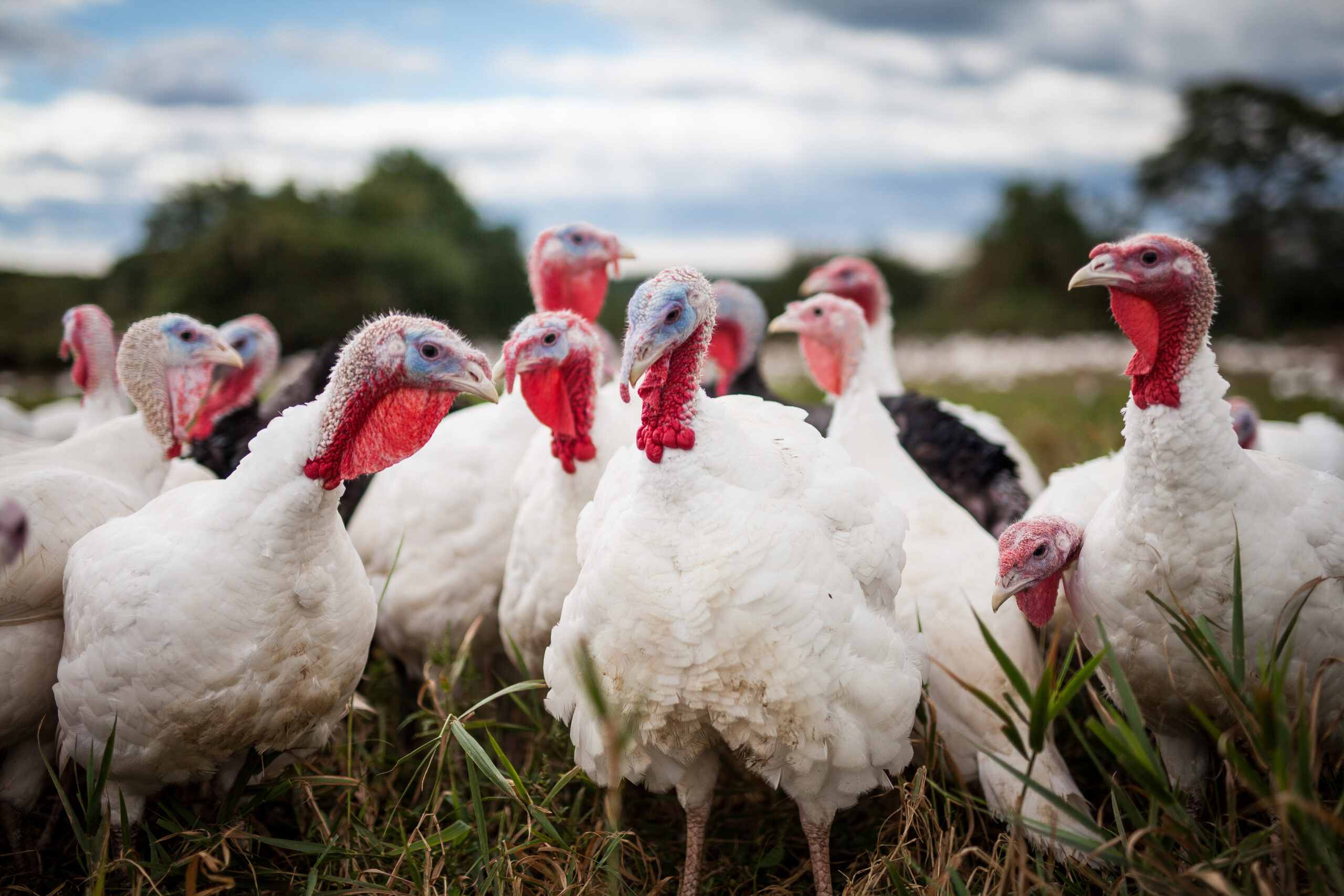
Over 46 million turkeys will grace America’s tables this Thanksgiving. Many of them will come from North Carolina, which ranks second in turkey production nationally, according to the U.S. Department of Agriculture.
But the path from farm to fork can be fraught. These birds and their producers have faced increased challenges from diseases in recent years, including from a re-emerging illness called clostridial dermatitis, or CD. Also known as gangrenous dermatitis, the disease produces severe skin lesions and frequently causes sudden death within days of infection.
Controlling clostridial dermatitis has become challenging as the bacteria behind the illness develop antimicrobial resistance in response to the overuse of antibiotics in poultry production. Savvy poultry producers are mitigating CD’s spread with non-antibiotic treatments, but to date there is no known effective non-antibiotic method to prevent the disease.
A group of interdisciplinary researchers from NC State’s College of Veterinary Medicine and College of Agriculture and Life Sciences is looking to change that. They are developing a probiotic-based oral vaccine for CD that can be more easily administered to large turkey populations and provide long-term immunity.
The benefit of such a vaccine is twofold, says lead researcher Dr. Ravi Kulkarni of the College of Veterinary Medicine: The immunization will not only prevent a costly disease, but its probiotics will also boost turkeys’ gut health to protect against other bacterial infections.
Furthermore, if the researchers’ probiotic-based vaccine proves successful in preventing CD, they could apply the technology to create vaccines for other major intestinal diseases in poultry, such as coccidiosis, salmonella and other clostridial infections.
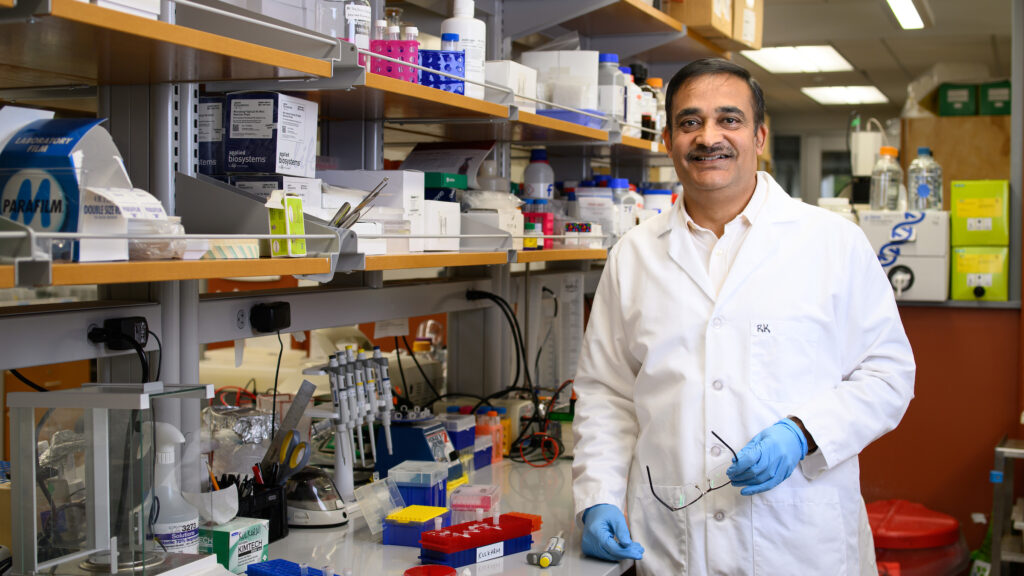
“It’s a ‘two birds, one stone’ approach,” says Kulkarni, an assistant professor studying immunology of infectious diseases and vaccine development. “It’s a novel concept to combine probiotics with a vaccine candidate that protects against the disease, and that appealed to the USDA.”
The researchers received $465,000 from the USDA’s National Institute of Food and Agriculture to fund the three-year project, which kicked off in September.
This study builds upon previous research by Kulkarni and co-investigators Dr. Rocio Crespo, a professor at the College of Veterinary Medicine, and Dr. Anil Thachil, a clinical microbiologist with the North Carolina Veterinary Diagnostic Laboratory System. That prior study identified the vaccine candidate antigen, or material capable of producing antibodies against CD, that will be used to develop the vaccine.
The USDA-funded project has three stages.
First, researchers will identify at least two strains of turkey-specific Lactobacillus probiotic bacteria that could be beneficial in a vaccine, then they will clone the vaccine candidate into the bacterial strains’ chromosomes to develop two types of immunizations. Finally, they will test the vaccine formulations individually and in combination to see which is most effective at preventing disease and promoting gut health.
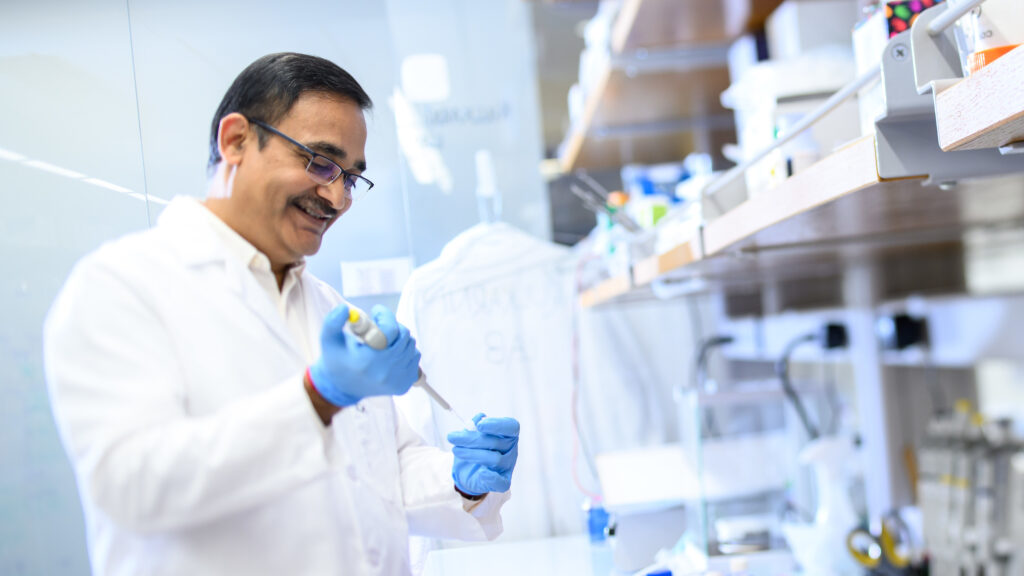
Microbiologists Dr. Rodolphe Barrangou and Dr. Sarah O’Flaherty of the College of Agriculture and Life Sciences round out the research team by overseeing the second step: engineering the Lactobacilli bacteria to develop the vaccine.
“Our lab aims to translate, collaborate and disseminate,” says Barrangou, who heads NC State’s CRISPR genome editing lab. “We wanted to work on a project that has a translational aspect, where eventually we could develop products that will be viable, interesting, relevant and practical to the industry. Additionally, we’re training Dr. Kulkarni’s lab in these techniques, so over time they’ll be more comfortable doing it themselves and train the next generation of investigators.”
If the researchers’ vaccine proves effective, producers could give it to their turkeys by mixing it into their feed or water, Kulkarni says.
This form of immunization cuts down on the time, energy and resources needed to inoculate birds one-by-one via injection, the current method used in the killed bacteria vaccines for CD. The long-term immunity effects of these existing inactivated vaccines are questionable, Kulkarni says, and they require producers to wrangle turkeys for booster shots.
O’Flaherty, who has worked extensively with Lactobacillus strains, says the technologies and techniques used in this project are also applicable to human diseases.
“As a lab, we are working on other projects that will target important worldwide global diseases that need improved vaccines, too,” she says.
Earning the USDA’s support is not only a significant accomplishment for the CVM’s poultry scientists, but it is also a personal point of pride for Kulkarni.
This is his first grant from the federal agency. Kulkarni says this milestone spurs him toward his long-term goal of establishing a program at the NC State College of Veterinary Medicine to promote poultry gut health and find alternatives to antibiotics in poultry production.
“Receiving the USDA funding is an honor and a great encouragement,” he says. “It tells me that the projects and ideas my team and I are pitching are in line with what is currently needed in the industry and that our work is on the right track to make a significant difference for turkeys and poultry producers nationwide.”
He is similarly excited to collaborate with Barrangou and O’Flaherty, whose specialized expertise expands the project’s scope.
“The days of working in a silo are gone,” Kulkarni says. “Now, everything is team-based, and multidisciplinary approaches are the need of the hour.”
